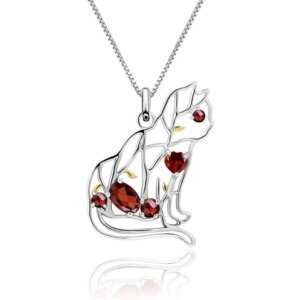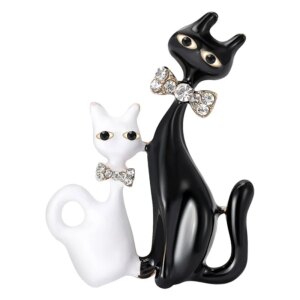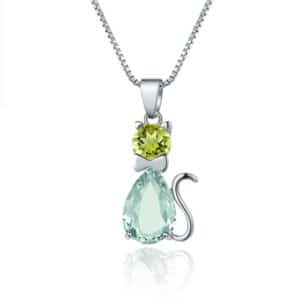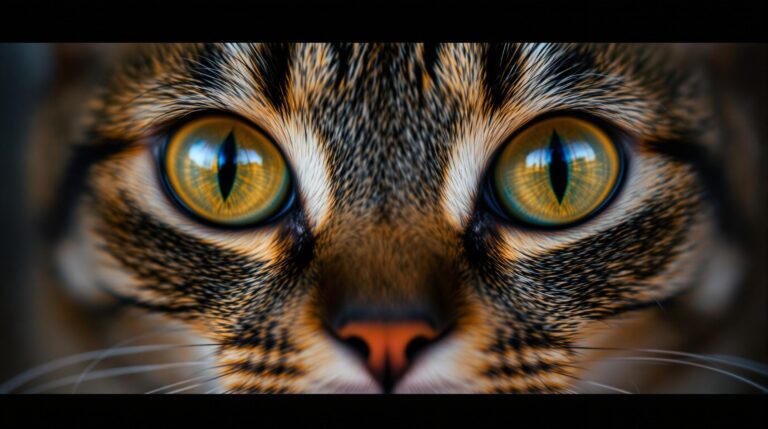Cats Diarrhea, at Cat Karma Creations, we understand that cat diarrhea can be a distressing and concerning issue for pet owners. This article will help you understand the common causes, symptoms, and treatments for cat diarrhea. We’ll also provide tips on how to prevent it and when to seek veterinary assistance. By the end, you’ll be better equipped to ensure your feline friend’s health and well-being.
Common Causes of Cats Diarrhea
Dietary Changes
Cats are sensitive creatures, and sudden changes in their diet can lead to cat diarrhea. When you introduce a new food, it can upset your cat’s digestive system, causing loose stools, vomiting, and discomfort. To prevent this, it’s important to make any dietary changes gradually. Introduce new foods slowly over a period of 7 to 10 days, mixing the new food with the old food to help your cat adjust.
Additionally, ensure that you are using high-quality, nutritious cat food. Cheap, low-quality foods can contain fillers and preservatives that may irritate your cat’s digestive system. If your cat has digestive issues, consider switching to a hypoallergenic or sensitive stomach formula. At Cat Karma Creations, we offer a range of cat-themed jewelry that can help you celebrate your feline friend’s health and happiness.
Parasites
Parasites such as worms, fleas, and ticks can also cause cat diarrhea. These parasites can infest your cat’s intestines, leading to weight loss, bloating, and other symptoms. Regular deworming and flea control are essential to prevent parasitic infections. If you suspect your cat has parasites, consult your veterinarian for appropriate treatment options, such as deworming medication.
Infections
Infections, whether viral, bacterial, or fungal, can cause cat diarrhea. Viral infections like feline panleukopenia or feline infectious peritonitis can lead to severe symptoms, including fever, lethargy, and vomiting. Bacterial infections, such as salmonella or E. coli, can also cause cat diarrhea. In some cases, fungal infections like histoplasmosis can be the culprit.
It’s crucial to seek veterinary care if you suspect your cat has an infection. Your vet can perform diagnostic tests to identify the cause and prescribe appropriate treatment, such as antibiotics or antivirals. Early diagnosis and treatment are essential to prevent the infection from becoming more serious.
Stress
Stress is another common cause of cat diarrhea. Cats can become stressed due to various factors, such as moving to a new home, the introduction of a new pet, or loud noises. Stress can disrupt your cat’s digestive system, leading to symptoms like diarrhea, vomiting, and hiding.
To reduce stress in your cat’s environment, provide a safe and comfortable space for your cat to retreat to. Maintain a consistent routine and avoid sudden changes. If your cat is particularly sensitive, consider using calming aids such as pheromone sprays or supplements. These can help soothe your cat and reduce the risk of stress-induced diarrhea.
Symptoms of Cats’ Diarrhea
Frequent Loose Stools
The most obvious symptom of cat diarrhea is frequent loose stools. If your cat’s stools are watery or have a loose, unformed consistency, it could indicate cat diarrhea. Normal cat stools should be firm and well-formed. If you notice a change in your cat’s stool consistency, it’s important to monitor the situation and take appropriate action.
Keep an eye on the frequency of your cat’s bowel movements. Cats typically have one to two bowel movements per day. If your cat is having more frequent bowel movements or if the stools are consistently loose, it’s a sign that something is wrong. Monitor your cat’s behavior and other symptoms to determine if a vet visit is necessary.
Vomiting and Lethargy
In addition to loose stools, cats with diarrhea may also experience vomiting and lethargy. Vomiting can be a sign of an underlying issue, such as a digestive problem or an infection. If your cat is vomiting frequently or if the vomit contains blood, it’s important to seek veterinary care promptly.
Lethargy, or a lack of energy, is another symptom to watch for. If your cat seems unusually tired, weak, or less active than usual, it could be a sign that your cat is not feeling well. Lethargy can be a symptom of cat diarrhea, especially if it is accompanied by other symptoms like vomiting or loss of appetite.
Dehydration and Weight Loss
Cats with diarrhea are at risk of dehydration, especially if they are also vomiting. Dehydration occurs when your cat loses more fluids than they are taking in. Symptoms of dehydration in cats include dry gums, sunken eyes, and poor skin elasticity. If you suspect your cat is dehydrated, it’s important to encourage them to drink water or seek veterinary care.
Weight loss is another potential symptom of cat diarrhea. If your cat is not eating or is losing weight, it could be a sign that they are not feeling well. Weight loss can be a symptom of a more serious underlying issue, such as an infection or a digestive disorder. If your cat is losing weight or showing other signs of illness, it’s important to consult your veterinarian for a proper diagnosis and treatment plan.
Treatment Options for Cats’ Diarrhea
Over-the-Counter Medications
There are several over-the-counter medications that can help treat cat diarrhea. These include anti-diarrheal medications like kaolin-pectin or bismuth subsalicylate. These medications can help firm up your cat’s stools and reduce the frequency of bowel movements. However, it’s important to use these medications under the guidance of a veterinarian, as some can be harmful if used incorrectly.
Other over-the-counter remedies, such as probiotics, can also be beneficial for cats with diarrhea. Probiotics help restore the balance of good bacteria in your cat’s gut, which can improve digestive health and reduce the symptoms of diarrhea. You can find probiotics in the form of supplements or in certain cat foods.
Natural Remedies
In addition to over-the-counter medications, there are several natural remedies that can help manage cat diarrhea. One effective method is to implement a bland diet. This involves feeding your cat easily digestible foods like boiled chicken or turkey and cooked rice. A bland diet can help soothe your cat’s digestive system and reduce the symptoms of diarrhea.
Another natural remedy is fasting. If your cat has mild diarrhea, you may want to fast them for 12 to 24 hours to give their digestive system a chance to rest. After the fasting period, gradually reintroduce a bland diet and monitor your cat’s symptoms. If the diarrhea persists, it’s important to seek veterinary care.
Probiotics, as mentioned earlier, can also be used as a natural remedy. You can find probiotics in the form of supplements or in certain cat foods. Probiotics can help restore the balance of good bacteria in your cat’s gut and improve digestive health.
Veterinary Care
In some cases, cat diarrhea may be a sign of a more serious underlying issue, and veterinary care is necessary. If your cat’s diarrhea is severe, persistent, or accompanied by other symptoms like vomiting, fever, or lethargy, it’s important to consult your veterinarian. Your vet can perform diagnostic tests, such as blood work, fecal exams, and imaging, to determine the cause of your cat’s diarrhea and recommend appropriate treatment.
Your vet may prescribe medications, such as antibiotics or anti-inflammatory drugs, to treat infections or other underlying issues. They may also recommend a special diet or other treatments to manage your cat’s symptoms. If your cat is dehydrated, your vet may administer fluids to help rehydrate your cat and improve their condition.
Preventing Cats’ Diarrhea
Balanced Diet
One of the best ways to prevent cat diarrhea is to maintain a balanced diet. Feed your cat high-quality, nutritious cat food that is appropriate for their age, breed, and health needs. Avoid feeding your cat table scraps or human food, as these can upset their digestive system and cause diarrhea.
If your cat has a history of digestive issues, consider switching to a hypoallergenic or sensitive stomach formula. These formulas are designed to be easily digestible and less likely to cause digestive problems. Always make dietary changes gradually to help your cat adjust and avoid sudden changes that can upset their digestive system.
Regular Veterinary Check-ups
Regular veterinary check-ups are essential for maintaining your cat’s health and preventing cat diarrhea. During these check-ups, your vet can perform routine exams and diagnostic tests to identify any potential issues early. They can also provide recommendations for preventive care, such as vaccinations, deworming, and flea control.
Regular check-ups can help ensure that your cat is up-to-date on all necessary vaccinations and preventive treatments. This can reduce the risk of infections and parasitic infestations, which are common causes of cat diarrhea. If your cat has a history of digestive issues, your vet may recommend more frequent check-ups to monitor their condition and provide appropriate care.
Stress Management
Stress can be a significant factor in cat diarrhea, and managing stress in your cat’s environment is crucial. Provide a safe and comfortable space for your cat to retreat to, and maintain a consistent routine. Avoid sudden changes, such as introducing new pets or moving to a new home, if possible.
If your cat is particularly sensitive to stress, consider using calming aids such as pheromone sprays or supplements. These can help soothe your cat and reduce the risk of stress-induced diarrhea. Additionally, spend quality time with your cat and provide plenty of enrichment activities, such as playtime and interactive toys, to help reduce stress and promote overall well-being.
Comparison Table: Common Causes of Cat Diarrhea
| Feature | Dietary Changes | Parasites | Infections | Stress |
|---|---|---|---|---|
| Common Causes | Sudden change in diet, new food | Worms, fleas, ticks | Viral, bacterial, fungal | Moving, new pets, loud noises |
| Symptoms | Loose stools, vomiting | Weight loss, bloating | Fever, lethargy | Diarrhea, vomiting, hiding |
| Treatment | Gradual diet change, bland food | Deworming medication | Antibiotics, antivirals | Calming aids, environmental changes |
| Prevention | Slow diet transitions, high-quality food | Regular deworming, flea control | Vaccinations, hygiene | Safe environment, routine |
Key Takeaways
- Understand the common causes of cat diarrhea, such as dietary changes, infections, and stress.
- Recognize the symptoms of cat diarrhea, including frequent loose stools, vomiting, and lethargy.
- Learn effective treatment options, from over-the-counter medications to natural remedies.
- Implement preventive measures, such as a balanced diet and regular veterinary check-ups.
- Manage stress in your cat’s environment to reduce the risk of diarrhea.
- Stay informed about when to seek veterinary help, especially if symptoms persist or worsen.
Popular Quote
“A cat improves the garden wall in sunshine, and the hearth in foul weather.” – Jeffrey Farnol
Statistical Fact
According to the American Society for the Prevention of Cruelty to Animals (ASPCA), approximately 10% of cats will experience diarrhea at some point in their lives. This statistic highlights the importance of understanding and managing this common issue to ensure your cat’s health and well-being.
Three Tips for Managing Cats’ Diarrhea
- Gradual Diet Changes: Introduce new foods slowly over 7 to 10 days to avoid upsetting your cat’s digestive system.
- Regular Deworming: Keep your cat on a regular deworming schedule to prevent parasitic infections that can cause diarrhea.
- Stress Reduction: Provide a safe and comfortable environment for your cat, and use calming aids if necessary to reduce stress-induced diarrhea.
Popular Questions About Cats’ Diarrhea
What are the most common causes of cat diarrhea?
The most common causes of cat diarrhea include dietary changes, parasites, infections, and stress. Sudden changes in diet, such as introducing new food, can upset your cat’s digestive system. Parasites like worms and fleas can infest your cat’s intestines, leading to diarrhea. Infections, whether viral, bacterial, or fungal, can also cause diarrhea. Stress, such as moving to a new home or the introduction of a new pet, can disrupt your cat’s digestive system.
How can I tell if my cat has diarrhea?
The most obvious symptom of cat diarrhea is frequent loose stools. If your cat’s stools are watery or have a loose, unformed consistency, it could indicate diarrhea. Other symptoms to watch for include vomiting, lethargy, dehydration, and weight loss. If you notice any of these symptoms, it’s important to monitor your cat’s condition and seek veterinary care if necessary.
When should I take my cat to the vet for diarrhea?
If your cat’s diarrhea is severe, persistent, or accompanied by other symptoms like vomiting, fever, or lethargy, it’s important to consult your veterinarian. Your vet can perform diagnostic tests to identify the cause of the diarrhea and recommend appropriate treatment. Early diagnosis and treatment are crucial to prevent the condition from becoming more serious.
Final Thoughts About Cats’ Diarrhea
Managing cats’ diarrhea requires a comprehensive approach, from understanding the causes to implementing effective treatments and preventive measures. By staying informed and proactive, you can ensure your cat remains healthy and happy. If symptoms persist, always consult your veterinarian for professional advice and care. For more information and to explore our range of cat-themed jewelry and gifts, visit us at Cat Karma Creations or contact us at (800) 343-1604 or info@catkarmacreations.com. Follow us on Facebook, Instagram, Pinterest, and Twitter for more tips and updates.















